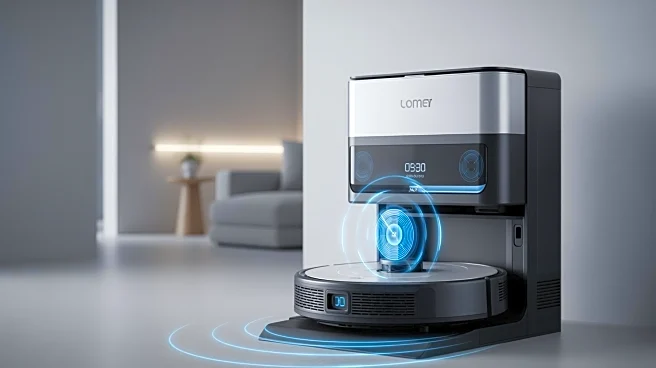What's Happening?
The Dreame L10s Pro Ultra robot vacuum is currently available at a new all-time low price of $370, down from its retail price of $900. This limited-time deal offers a 59% discount on the vacuum, which
features 7,000 Pa of suction power, a self-cleaning base, and the ability to hold up to 75 days' worth of debris. The vacuum is designed to transition easily from hard floors to carpets and includes smart recognition to avoid obstacles. It also offers customizable cleaning routines via an app, although it only supports 2.4G Wi-Fi.
Why It's Important?
The significant discount on the Dreame L10s Pro Ultra robot vacuum makes it an attractive option for consumers looking to automate household chores. As tariffs raise prices on electronics, this deal provides an opportunity to purchase a high-quality vacuum at a reduced cost. The vacuum's advanced features, such as self-cleaning and smart recognition, enhance convenience and efficiency, appealing to tech-savvy consumers. This development may influence the home appliance market by encouraging more consumers to invest in smart home technology, potentially driving innovation and competition among manufacturers.
What's Next?
With the holiday shopping season approaching, consumers can expect more deals on home appliances and electronics. The Dreame L10s Pro Ultra's discounted price may prompt other brands to offer competitive deals to attract customers. As smart home technology becomes more accessible, consumer demand for automated solutions is likely to increase, potentially leading to further advancements in the industry. Manufacturers may focus on enhancing features and connectivity options to meet evolving consumer preferences, while retailers may continue to offer attractive discounts to boost sales during the holiday season.
Beyond the Headlines
The growing popularity of smart home technology raises questions about privacy and data security, as devices increasingly rely on connectivity and app integration. Consumers may need to consider the implications of sharing data with manufacturers and third-party apps. Additionally, the shift towards automated solutions may impact traditional cleaning practices and the demand for manual cleaning tools. As technology continues to evolve, ethical considerations regarding accessibility and affordability may arise, as not all consumers can afford high-end smart home devices.











